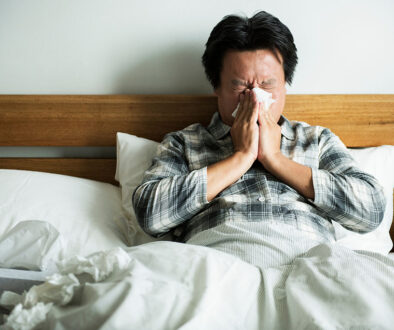The Three Most Common North Carolina Allergies: How To Avoid Them
There are several wonderful things about the Tar Heel state: world-class universities, gorgeous beaches, breathtaking mountains, the thrill of some of the best basketball games in the country. But the allergy season? Not so much.
As the “land of the long-leaf pine,” North Carolina has the dubious honor of having some of the most troublesome spots for those with seasonal allergies. In fact, several locations are regulars on lists such as “The Worst U.S. Cities for Allergies” (Raleigh, Greensboro and Charlotte, we’re looking at you). North Carolina residents know that it is not the traditional first robin sighting that signals the beginning of spring, but rather it is the first sighting of yellow pollen dust coating everything in its path. Some of the most common sources of allergies in North Carolina are:
- Pollens (particularly grass, weed and tree pollens)
- Molds
- Dust mites
POLLEN
It seems there is no escape from the yellow dust that accumulates everywhere during the North Carolina springs. While it may be impossible to avoid pollen entirely, the following tips may help:
- Stay indoors if at all possible, particularly on windy days.
- If you can plan outdoor activities ahead of time, try to go outside after a good rain.
- Remove clothes that you have worn outside—avoid tracking pollen throughout the house.
- Be sure to brush pets after they have been outside, or keep them outside.
- Keep careful watch over the pollen counts and close doors and windows when the pollen counts are high.
- Be sure to vacuum regularly and use a HEPA filter to ensure you are clearing the air.
MOLD
Mold thrives in humid environments, which makes North Carolina a perfect breeding ground for this troublesome intruder. Mold spores can cause seasonal allergy symptoms.
- Keep windows closed at night: Airborne mold spore counts tend to be higher at night.
- Use a dehumidifier to discourage the growth of mold in your home.
- If you have to work around plants or compost, or if you are mowing your lawn, you may want to consider wearing a mask.
- Mold is particularly worse after a rainstorm, so avoid going outside when mold counts are going to be high.
DUST MITES
Okay, maybe North Carolina’s climate and geography can’t be blamed for this one. Dust mites are very common, and following are some tips for getting rid of them:
- Wash bedding weekly — including pillowcases and bed covers in water that is at least 130 degrees F to kill bugs.
- Use allergen-proof bed covers for your mattress, pillows and box springs.
- Be sure to wash stuffed animals.
- Dust and vacuum regularly.
Of course, it is not possible to avoid all allergens entirely. It may be necessary to see a physician or even start immunotherapy. Immunotherapy is a method of allergy treatment that gradually reduces the body’s sensitivity to certain allergens.




